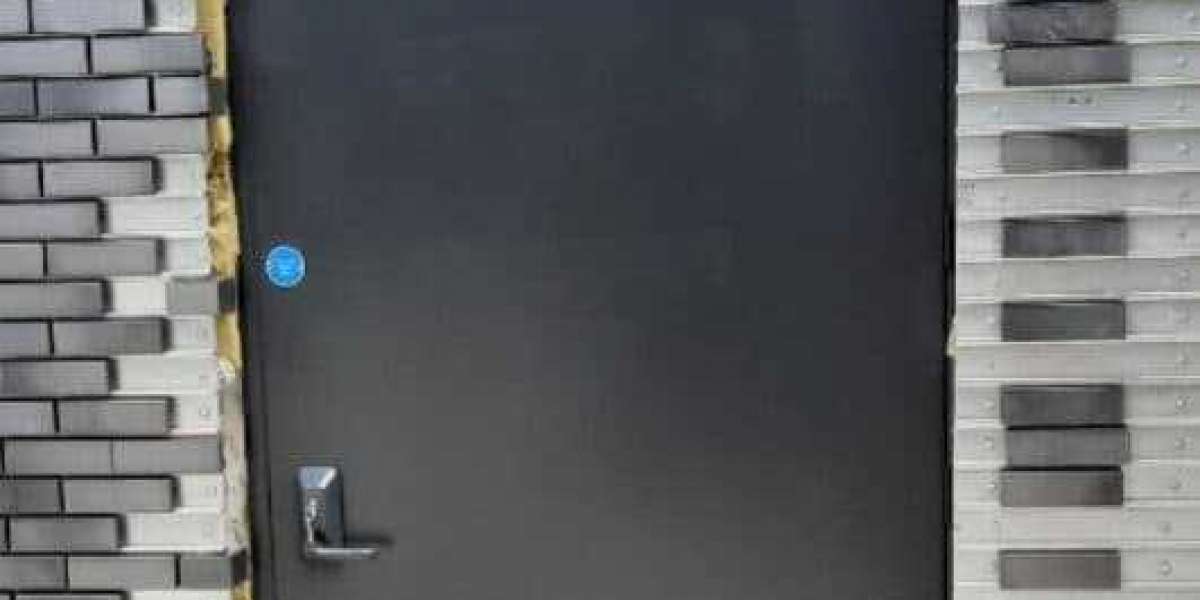In an increasingly noisy world, finding peace and tranquility within our own spaces has become a necessity. Whether in homes, offices, or other environments, controlling sound is essential for maintaining focus, privacy, and overall well-being. One of the most effective ways to achieve this is through the installation of soundproof doors. However, not all doors are created equal when it comes to sound insulation. This article will explore the key factors to consider when choosing a door that effectively blocks sound, helping you create a quieter and more comfortable environment.
Understanding Sound Transmission
Before diving into the selection process, it's important to understand how sound travels and the factors that affect sound transmission. Sound waves travel through the air and can penetrate various materials, including walls, ceilings, and doors. The effectiveness of a door in blocking sound depends on its construction, materials, and design.
Sound is measured in decibels (dB), and different types of doors have different Sound Transmission Class (STC) ratings, which indicate their ability to reduce sound transmission. A higher STC rating means better sound insulation. For example, a standard hollow-core door may have an STC rating of around 20, while a solid wood or steel door can achieve ratings of 30 or higher. Understanding these ratings will help you make an informed decision when selecting soundproof doors.
Key Factors to Consider When Choosing Soundproof Doors
1. Door Material
The material of the door plays a crucial role in its soundproofing capabilities. Here are some common materials and their sound-blocking properties:
Solid Wood: Solid wood doors are dense and heavy, making them excellent at blocking sound. Their thickness and mass help absorb and dampen sound waves, resulting in better acoustic performance.
Steel: Steel doors are another strong option for soundproofing. Known for their durability and strength, steel doors also provide a high level of sound insulation, particularly when combined with sound-absorbing materials.
Fiberglass: Fiberglass doors can offer a good balance between soundproofing and aesthetics. These doors are often designed to mimic the appearance of wood while providing decent sound insulation.
Hollow-Core: Hollow-core doors are generally less effective for soundproofing due to their lightweight construction. While they may be more affordable, they do not provide the same level of sound blocking as solid or steel options.
2. Door Thickness
The thickness of a door significantly impacts its ability to block sound. Thicker doors tend to be more effective at reducing sound transmission. A minimum thickness of 1.75 inches is recommended for doors intended to provide soundproofing benefits. This thickness allows the door to absorb more sound waves and reduces the likelihood of sound leakage.
3. Sealing and Gasketing
Another critical aspect of soundproof doors is the sealing around the door edges. Even the most solid door can lose its soundproofing effectiveness if there are gaps between the door and the frame. High-quality soundproof doors should come with effective seals and gaskets that compress when the door is closed. These seals create an airtight barrier, preventing sound from leaking through the edges.
Weatherstripping is an essential feature for soundproof doors. It not only improves sound insulation but also enhances energy efficiency by preventing drafts. Inspecting the door's sealing system and ensuring it is properly installed can make a significant difference in soundproofing performance.
4. Design and Construction
The design and construction of soundproof doors can vary significantly, and these factors can impact their effectiveness. Consider the following aspects:
Acoustic Core: Some doors are designed with specific acoustic cores made from sound-absorbing materials. These cores enhance the door's ability to block sound and can provide superior performance compared to standard doors.
Multiple Layers: Doors that incorporate multiple layers of material can also improve sound insulation. A door with a combination of solid materials and acoustic layers can effectively dampen sound waves, creating a more peaceful environment.
Hinges and Hardware: The type of hinges and hardware used can affect the overall performance of the door. Heavy-duty hinges and secure locking mechanisms can contribute to the door's stability and help maintain its soundproofing capabilities.
5. Aesthetics and Compatibility
While soundproofing is a priority, aesthetics should not be overlooked. Choosing a door that complements the overall design of the space is essential for maintaining a cohesive look. Fortunately, many manufacturers offer soundproof doors in various styles, finishes, and colors.
Additionally, consider the compatibility of the door with existing frames and structures. A door that fits well within the frame will provide better sound insulation than one that is improperly installed. Ensuring the door aligns with the architectural style of the building can enhance both functionality and aesthetics.
The Role of Professional Installation
Once you have chosen the appropriate soundproof door, professional installation is crucial to achieving the best results. Even the highest-quality door can underperform if not installed correctly. Professional installers have the expertise to ensure that the door is properly aligned, sealed, and adjusted for optimal sound insulation.
Additionally, they can assess the overall soundproofing needs of the space and make recommendations for other improvements, such as wall insulation or window treatments, that can further enhance sound control.
Testing and Certification
Before making a final decision, it is advisable to research the STC ratings of the soundproof doors you are considering. Many manufacturers provide testing data and certifications for their products, which can help you gauge their effectiveness. Look for doors that have been tested under standardized conditions to ensure that the ratings are reliable.
Conclusion
In conclusion, choosing the right soundproof doors is a crucial step in creating a quieter and more comfortable environment, whether at home or in a commercial space. By considering factors such as door material, thickness, sealing, design, and professional installation, you can make an informed decision that meets your soundproofing needs.
Investing in quality soundproof doors not only enhances privacy but also contributes to improved productivity and overall well-being. For those seeking reliable and effective solutions to sound insulation, consider reaching out to Security Doors Direct today. Take the first step towards a quieter and more peaceful space—your comfort and focus deserve the best!







